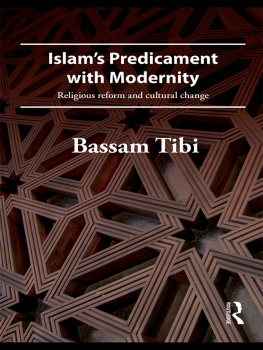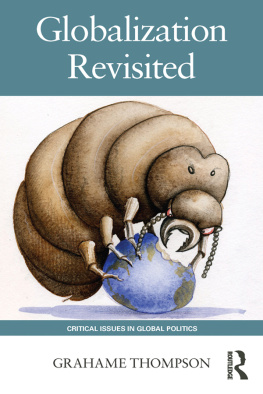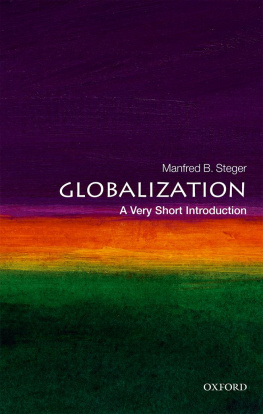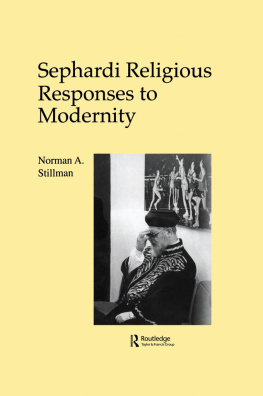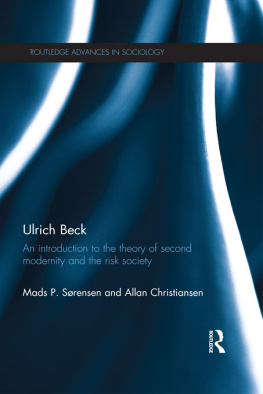
Globalization, Modernity and the Rise of Religious Fundamentalism
The emergence of religious fundamentalism in a globalized, post-colonial world poses a significant challenge to the End of History narratives common in academic and non-academic literature alike.
Globalization, Modernity and the Rise of Religious Fundamentalism proposes that we must seek new explanations for this phenomenon that recasts the relationship between globalization, modernity and religion. One model through which this is possible is that of a dialectical kaleidoscopic methodology one that applies a variety of theoretical tools and takes a truly multi-dimensional perspective. Through the overlapping and complementary approaches of systems theory, field theory and network theory, this book redefines the concepts of globalization, modernity and religion itself by challenging the inherent misconceptions of ethnocentric biases. It also provides a thorough historical analysis of religious systems from antiquity to the present to show the integration of modern and archaic elements within the structure of religious fundamentalism.
Interdisciplinary in nature, Globalization, Modernity and the Rise of Religious Fundamentalism will appeal to students and researchers interested in fields such as geopolitics, history of race and ethnicity, postcolonialism, globalization and sociology of religion.
Dimitrios Methenitis is a scientific assistant in the Greek-Chinese Center for Entrepreneurship, Greece.
Routledge Advances in Sociology
Horizontal Europeanisation
The Transnationalisation of Daily Life and Social Fields in Europe
Edited by Prof. Dr. Martin Heindenreich
The Marginalized in Genocide Narratives
Giorgia Don
The Social Structures of Global Academia
Edited by Fabian Cannizzo and Nick Osbaldiston
Citizenship in the Latin American Upper and Middle Classes
Ethnographic Perspectives on Culture, Politics, and Consumption
Edited by Fabian Cannizzo and Nick Osbaldiston
Youth and the Politics of the Present
Constructing the Future
Edited by Enzo Colombo and Paola Rebughini
Trade Unions and European Integration
A Question of Optimism and Pessimism?
Edited by Johannes M. Kiess and Martin Seeliger
Globalization, Modernity and the Rise of Religious Fundamentalism
The Challenge of Religious Resurgence Against the End of History (A Dialectical Kaleidoscopic Analysis)
Dimitrios Methenitis
Urban Environments for Healthy Ageing
A Global Perspective
Edited by Anna P. Lane
For more information about this series, please visit: www.routledge.com/Routledge-Advances-in-Sociology/book-series/SE0511
Globalization, Modernity and the Rise of Religious Fundamentalism
The Challenge of Religious Resurgence Against the End of History (A Dialectical Kaleidoscopic Analysis)
Dimitrios Methenitis
First published 2019
by Routledge
2 Park Square, Milton Park, Abingdon, Oxon OX14 4RN
and by Routledge
52 Vanderbilt Avenue, New York, NY 10017
Routledge is an imprint of the Taylor & Francis Group, an informa business
2019 Dimitrios Methenitis
The right of Dimitrios Methenitis to be identified as author of this work has been asserted by him in accordance with sections 77 and 78 of the Copyright, Designs and Patents Act 1988.
All rights reserved. No part of this book may be reprinted or reproduced or utilised in any form or by any electronic, mechanical, or other means, now known or hereafter invented, including photocopying and recording, or in any information storage or retrieval system, without permission in writing from the publishers.
Trademark notice: Product or corporate names may be trademarks or registered trademarks, and are used only for identification and explanation without intent to infringe.
British Library Cataloguing-in-Publication Data
A catalogue record for this book is available from the British Library
Library of Congress Cataloging-in-Publication Data
A catalog record for this book has been requested
ISBN: 978-0-367-22812-5 (hbk)
ISBN: 978-0-429-27697-2 (ebk)
Typeset in Times New Roman
by Apex CoVantage, LLC
Contents
The assumption that religion would play a diminishing role in the worlds contemporary societies has long since lost its validity and today the theory of secularization that predicted its decline seems largely outdated mainly outside of the Western world. Recent outbreaks of radical religious fundamentalism are widespread, from Buddhist violence in Myanmar and extremist religious organizations such as IS in the Middle East and Boko Haram in Central Africa, to less extremist manifestations such as the rise of nationalism in Russia, Turkey and India. As this study seeks to demonstrate, all such manifestations share a strong attachment to their religious traditions indicating that religious fundamentalism is a global phenomenon rapidly expanding in different parts of the world and radically influencing global geopolitics. A far more dangerous phenomenon than the rise of religious fundamentalist and terrorist groups across the globe is the actual siege of a state by religious fundamentalist politics. All these phenomena speak of the increasingly salient role played by religion in the contemporary societies particularly of the Global South, a role that could perhaps dramatically influence the socio-political course at the dawn of the twenty-first century. One of the most dominant interpretations of these phenomena is that, with the massive disruption to traditional societies and their economies, religious cultures provide the raw ideological material of violent protest. As Turner (2011) argues, the violent secular groups of the 1960s and 1970s the Red Brigades and the Baader-Meinhof have simply been replaced by the jihadhists of this century.
Nevertheless, questions regarding why and how an ancient institution such as religion can continue to play a major role in the contemporary world societies and become a tool for ideological radicalism on a global level remain open. This book will attempt to answer such questions through an in-depth social theoretical and critical analysis of the globalization of religious fundamentalism. Although the issue of religious conflict might appear similar on some grounds to the theory of the Clash of Civilizations of Samuel Huntington (1996), it differs significantly from the latter by revealing the inner conflict within a religious systems structure as experienced in sectarian clashes. This study considers the phenomenon of religious fundamentalism principally through a selection of social theories in order to reexamine the key issues of globalization and modernity in traditional and modern societies. The Eurocentric misinterpretation of these key terms has greatly distorted their very meaning and significance. New understandings of these two terms are crucial in order to be objective about their role in contemporary society and their direct relation with the rise of religious fundamentalism on a global scale. As the recent rise of the Global South challenges the very core of Eurocentric theory, one lesson we can perhaps draw is that modernity is not merely a privileged Western phenomenon. Nave assumptions of the end of history made famous by Fukuyamas book


